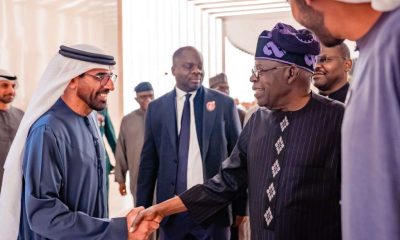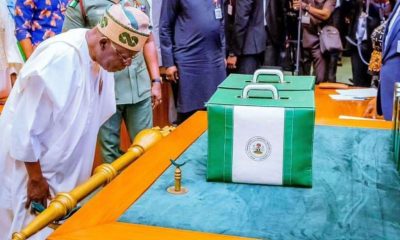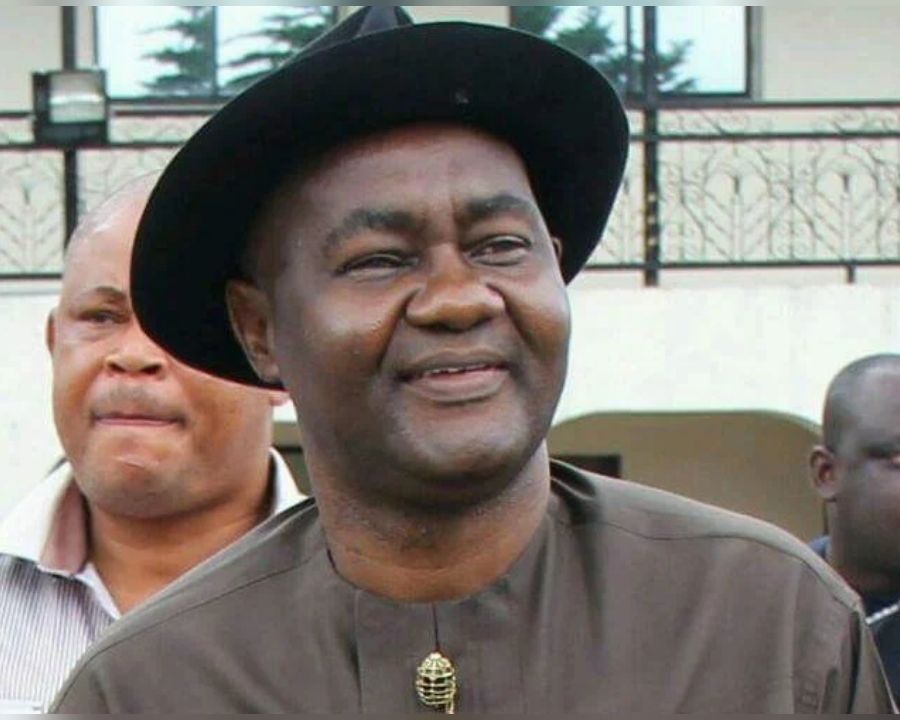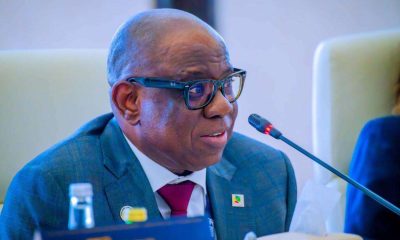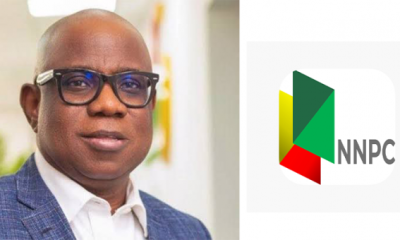Business
NNPCL: President Tinubu completes Southwest hold on economy
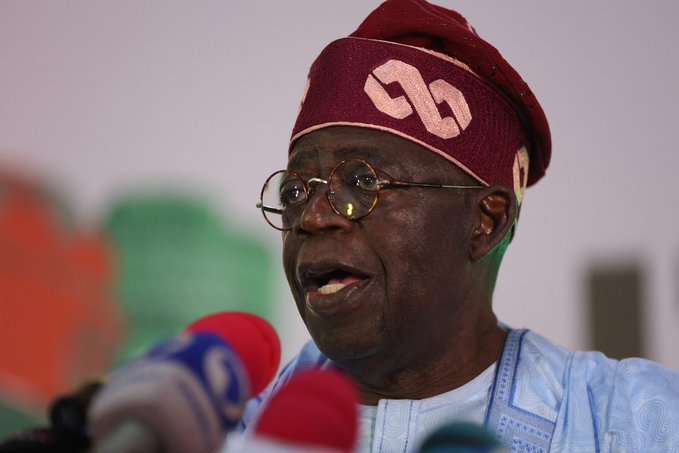
...as Nigerians express relief, expectations over new management
President Bola Tinubu’s political camp has completed a clean sweep of Nigeria’s vital economic structures with the sacking of the board and management of the Nigerian National Petroleum Company Limited (NNPCL) and the appointment of his own men as replacements.
Having already taken control of the executive arm of government, the military, the two legislative arms (Senate and House of Representatives), as well as having a largely conservative and pro-establishment judiciary to work with, this latest takeover of NNPCL, the agency in charge of Nigeria’s economic lifeline – the oil and gas sector – has finally handed the president a vast power to dispense favour and run the country largely unchallenged.
In the early hours of Wednesday, April 2, 2025, President Tinubu announced the sacking of the entire board of the NNPCL through his Special Adviser on Information and Strategy, Bayo Onanuga.
In a statement he personally signed and released to the media, Onanuga said the dissolution of the NNPCL board affected the immediate past Group Chief Executive Officer of the company, Engr. Mele Kyari and Chairman, Chief Pius Akinyelure.
The president also announced the reconstitution of a new board, naming Bashir Ojulari as the new CEO, effective from April 2, 2025.
“President Tinubu removed all other board members appointed with Akinyelure and Kyari in November 2023.
“The new 11-man board has Engineer Bashir Bayo Ojulari as the Group CEO and Ahmadu Musa Kida as non-executive chairman”, the statement read.
Adedapo Segun, who replaced Umaru Ajiya as the chief financial officer in November 2023, was appointed to the new board.
Six board members and non-executive directors will represent the country’s six geopolitical zones. They are Bello Rabiu, representing the North West, Yusuf Usman, representing the North East, and Babs Omotowa, a former managing director of the Nigerian Liquefied Natural Gas, who represents North Central.
Power Grab
Invoking the powers granted under Section 59, subsection 2 of the Petroleum Industry Act, 2021, the president emphasized that the board’s restructuring is crucial for enhancing operational efficiency, restoring investor confidence, boosting local content, driving economic growth, and advancing gas commercialisation and diversification.
However, Business Hallmark reliably gathered that the new appointments are in continuation of the ongoing power grab by the president’s camp as the 2027 general elections draw near.
Though, the new NNPCL’s CEO, Bashir Ojulari, is from Kwara State, North Central Nigeria, he is a full-blooded Yoruba from the Okun speaking part of Kwara State.
The same goes for the new board chairman of NNPCL, Ahmadu Musa Kida, who is a Kanuri from Borno State.
BH sources disclosed that the two new NNPCL henchmen were tapped for the positions by powerful forces in the presidency close to President Tinubu and Vice President Kashim Shettima.
With NNPCL now in their kitty, Tinubu’s men are now in control of Nigeria’s most critical finance and revenue generating agencies.
These agencies include Nigeria’s three biggest revenue earners, the Federal Inland Revenue Service (FIRS), Nigeria Customs Service (NSC) and the Nigerian National Petroleum Company Limited (NNPCL).
Other critical agencies and ministries that are being controlled by men in the president’s camp are the Central Bank of Nigeria (CBN); Ministry of Finance; Ministry of Finance Incorporated (MOFI), the sole manager of federal government investment interests, estates, and rights valued at over N20 trillion, as well as the Nigerian Maritime Administration and Safety Agency (NIMASA).
While the CBN, which manages the nation’s finances and funds, is controlled by Tinubu’s close ally and former commissioner in Lagos State, Yemi Cardoso, Wale Edun, a former commissioner in Lagos State while Tinubu was governor, currently oversees the Federal Ministry of Finance.
In the same vein, Dr. Dayo Mobereola, the incumbent Director-General of NIMASA, was the Managing Director of Lagos Metropolitan Area Transport Authority (LAMATA) from 2003 to 2015 and also the Commissioner for Transportation in Lagos State from 2015 to 2016.
Before his appointment as the Managing Director/Chief Executive Officer of MOFI, Dr. Armstrong Ume Takang, was the Special adviser to the Minister of Finance, as well as Lead, MOFI Transformation Team.
FIRS Chairman, Zacch Adedeji, is said to be one of the most powerful and influential men in Tinubu’s political government.
A native of Ogbomosho in Oyo State, Adedeji previously served as the Commissioner for Finance in Oyo State from June 2011 to May 2015 and the Special Adviser to the President on Revenue before his current appointment as executive chairman of FIRS.
The serving Comptroller General (CG) of the Nigeria Customs Service (NCS), our correspondent learnt, caught the eyes of the president and his men while serving in Lagos as an officer in the NSC where he earned their trust.
From Modakeke in Osun State, the same state as the president, Adeniyi now superintends over NCS, Nigeria’s third largest revenue generating agency (it generated N6.1 trillion in 2024) behind NNPCL and FIRS.
Apart from taking a complete sweep of the nation’s public finance and economic sectors, the president’s men are also in charge of defence apparatus (military and civilian) and the legislature.
With the appointments of his kinsmen from the South West, former ADC while serving as Lagos governor, Kayode Egbetokun, as Inspector General of Police (IGP) and Oluwatosin Ajayi as Director-General of the Department of State Security (DSS) respectively, the president is firmly in charge of internal security. The two security chiefs are from Ogun State.
The president also controls the military with the Chief of Army Staff (COAS, Gen. Olufemi Oluyede, who comes from Ondo State, heading the Nigerian Army.
Oluyede succeeded Lt-Gen. Taoreed Lagbagba, a native of Osun State in the South West, who died in London in 2024 after a protracted illness.
The president also appointed a Northern Christian from Kaduna, Christopher Musa, as the Chief of Defence Staff (CDS).
Other service chiefs appointed by the president include the National Security Adviser (NSA), Nuhu Ribadu, a loyal associate from Adamawa State in the North East and the Director-General of the National Intelligence Agency (NIA), Muhammed Muhammed, a Nupe from Kwara State.
Meanwhile, the president ceded the two civilian defence positions to Jigawa-born Mohammed Badaru Abubakar, Minister of Defence and former Zamfara Governor, Bello Matawalle, as Minister of State for Defence
Like he did with economy and defence, the president also controls the two arms of the National Assembly with his backed loyalists directing the affairs of the chambers.
For instance, his candidates, Senate President Godswill Akpabio, Deputy Senate President Barau Jibrin, Senate Leader, Opeyemi Bamidele and others control the Senate unchallenged.
Likewise, the president’s anointed candidates in the leadership race for the House of Representatives in June 2023 all emerged victorious.
They include the Speaker, Tajudeen Abbas and deputy speaker, Benjamin Kalu.
Though, the judiciary is largely independent of the executive arm, it is largely conservative and most often affirm the status quo, which plays into the hands of the president.
Apart from that, critics of the government argue that the Chief Justice of Nigeria (CJN), Kudirat Kekere-Ekun, being an appointee of the president, as well as being a native of Lagos, the president’s adopted state, will not go out of her way to rock the boat.
Meanwhile,a cross section of Nigerians believe that the change was over due, and wondered it took the president so long to do it, given the confusion and hardship they past management had brought on Nigerians.
“I am concerned about the appointment of only his people to key positions, which is unfair to the rest of the country, but what I think should concern us more now is how the new board and management deal with the present high price of fuel in the country, and also raise the production output to improve our foreign reserves and the value of the naira, said economic analyst, Mr. Julius Alagbe.
Speaking on the matter, a political analyst, Dr. Ben Orji, said with the way important appointments have been rigged in favour of the president and his camp, it would be almost impossible to stop him from perpetuating his agendas.
“With less than two years of sweeping to power, President Tinubu is on his way to acquiring absolute powers, having already taken over the three arms of government.
“Having control of both chambers of the National Assembly has cleared the way for him to confirm his nominations for key administration positions and also allow him to push through his radical agendas like the local government autonomy and fiscal reforms.
“He has no problem with the judiciary as the body is a very conservative one which often align with established protocols.
“Without being prompted, they (judiciary) will, to a very large extent, side with the executive arm of government as our laws are made largely to protect the system.
“That is why I always disagree with Nigerians who often allege that judges, especially Supreme Court justices, have been compromised by government after making unpopular judicial pronouncements.
“Judges all over the world, not only in Nigeria, are mostly fixated on protocols and technicalities.
“Even when judges know quite well that a claimant’s demands are justified, a small technicality like lack of jurisdiction can undo his case”, Orji noted.


